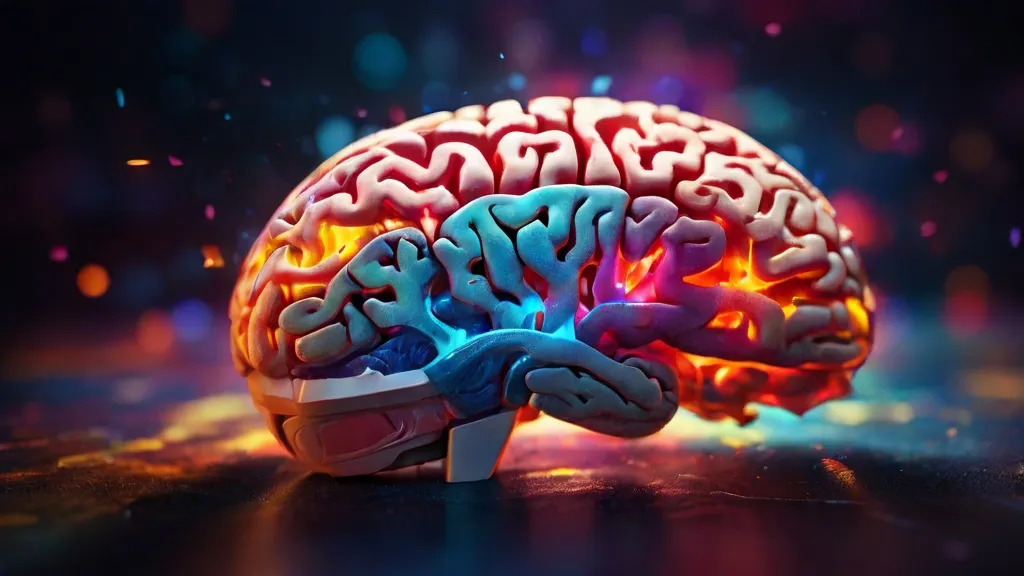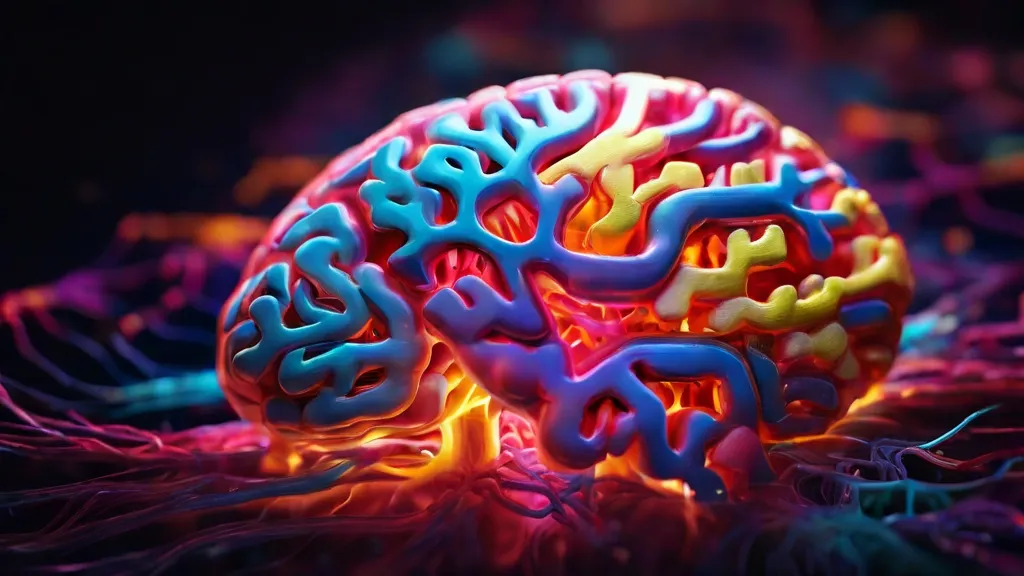What Is The Connection Between Gut Health And Brain Function?

What Is The Connection Between Gut Health And Brain Function?
Just imagine a world where your gut health directly impacts your brain function. Well, that world is not just a figment of imagination - research has shown a crucial connection between the two. The gut-brain axis is a bidirectional communication system that links the emotional and cognitive centers of the brain with intestinal functions. This means that the state of your gut can directly influence your mental health, cognitive abilities, and even mood. Understanding and nurturing this connection can lead to improved overall well-being and an increase in mental clarity.
Key Takeaways:
- Gut-Brain Axis: The gut-brain axis is a bidirectional communication system linking the central nervous system with the enteric nervous system in the gut, playing a crucial role in mood, cognition, and overall brain function.
- Microbiome Impact: The gut microbiome, made up of trillions of bacteria, fungi, and other microbes, influences brain function by producing neurotransmitters, regulating inflammation, and shaping the immune system.
- Psychobiotics: Probiotics and prebiotics, known as psychobiotics, can positively impact mental health by promoting a healthy gut microbiome, reducing symptoms of anxiety and depression, and enhancing cognitive function.
- Dietary Influences: Consuming a diet rich in fiber, fermented foods, and nutrients like omega-3 fatty acids can support gut health and improve cognitive function, while diets high in sugar and processed foods may negatively impact both the gut and the brain.
- Stress Management: Chronic stress can disrupt the gut microbiome and impair brain function, so practicing stress-reducing techniques like mindfulness, meditation, and exercise can benefit gut health and cognitive performance.
The Science Behind the Scenes
The connection between gut health and brain function is a fascinating field of study that is shedding light on the intricate relationship between our digestive system and our mental well-being. The gut-brain axis is a bidirectional communication network that links the central nervous system with the enteric nervous system of the gut.
Anatomy of the Gut-Brain Axis
Any disruption in this complex system can lead to a cascade of effects on both our physical and mental health. The gut is home to millions of neurons that communicate with the brain through the vagus nerve, influencing our mood, appetite, and even our cognitive function.
The gut also houses a vast community of microorganisms known as the gut microbiota, which play a crucial role in digestion, immune function, and neurotransmitter production.
Neurotransmitter Production and Your Gut
On a chemical level, the gut is a major hub for neurotransmitter production, including key players like serotonin and dopamine. These neurotransmitters not only regulate our mood and emotions but also impact our cognition and memory.
Plus, an imbalance in gut bacteria can lead to a decrease in neurotransmitter production, potentially contributing to conditions like anxiety, depression, and even neurodegenerative diseases. It's crucial to nurture a healthy gut environment to support optimal brain function and overall well-being.

The Microbiome's Role in Mental Health
Any disruption in the delicate balance of your gut flora can have a profound impact on your mental health. The connection between the gut and the brain is now a well-established fact, and scientists are constantly uncovering new ways in which the microbiome influences our mood, cognition, and overall mental well-being.
Probiotics and Your Mood
Probiotics are the good bacteria that help maintain a healthy gut environment. Studies have shown that consuming probiotics can have a positive effect on mood and emotional well-being. These beneficial microbes produce neurotransmitters like serotonin and GABA, which are crucial for regulating mood and reducing anxiety. By supporting the growth of these friendly bacteria through probiotic-rich foods or supplements, you can potentially improve your mental health.
Gut Dysbiosis and Psychological Disorders
With gut dysbiosis, the delicate balance of bacteria in the gut is disrupted, leading to an overgrowth of harmful bacteria and a decrease in beneficial ones. This imbalance has been linked to various psychological disorders, including depression, anxiety, and even neurodegenerative diseases like Alzheimer's. The gut-brain axis plays a critical role in these conditions, as the communication between the gut and the brain is compromised when the microbiome is in disarray.
Gut Dysbiosis and Psychological Disorders
The impact of gut dysbiosis on psychological disorders cannot be understated. Research has shown that restoring the balance of gut bacteria through interventions like probiotics, dietary changes, and lifestyle modifications can have a significant impact on mental health outcomes. By addressing gut dysbiosis, we have the potential to not only alleviate symptoms of psychological disorders but also prevent them from occurring in the first place.
Gut Instincts: How Your Digestive Health Influences Decisions
Now, let's dive deep into the fascinating connection between your gut health and your brain function. You might have heard the term "trust your gut" when making decisions, and science is starting to uncover the truth behind this age-old advice.
The Science of "Gut Feelings"
Your gut is often referred to as your "second brain" because of the intricate network of neurons lining your digestive system. This network, known as the enteric nervous system, communicates bidirectionally with your central nervous system, influencing your mood, emotions, and even decision-making processes.
Research suggests that signals from your gut can impact your brain's neurotransmitters, such as serotonin and dopamine, which play crucial roles in regulating your mood and cognition. This communication pathway sheds light on why you may experience "butterflies in your stomach" or a "gut feeling" in certain situations.
Intuition and Microbial Influence
Health isn't just about what you eat; it's also about the trillions of bacteria residing in your gut. These gut microbes, collectively known as the gut microbiota, play a significant role in influencing your intuition and decision-making process.
With a diverse and balanced gut microbiota, you are more likely to experience clarity in your thoughts and emotions. However, an imbalance in your gut flora, known as dysbiosis, can lead to symptoms like brain fog, anxiety, and even depression. It's important to maintain a healthy gut environment to support optimal brain function and decision-making.
Nutrition's Impact on Brain Function
Despite the rise in awareness about the gut-brain connection, many people overlook the crucial role that nutrition plays in maintaining optimal brain function. The food we consume directly impacts our gut health, which in turn influences our brain health. Understanding how nutrition affects brain function is key to promoting overall well-being.
Foods That Boost Brain-Gut Communication
For those looking to improve their brain-gut communication, incorporating certain foods into their diet can be highly beneficial. Foods rich in probiotics and prebiotics such as yogurt, kefir, sauerkraut, garlic, onions, and bananas can help support a healthy gut microbiome. Additionally, fatty fish like salmon, nuts, seeds, and leafy greens are packed with omega-3 fatty acids and antioxidants that promote brain health.
Diets That Disrupt the Harmony
Boosting brain function goes beyond just adding beneficial foods to your diet - it also involves avoiding those that can disrupt the delicate balance between the gut and brain. Diets high in processed foods, sugar, and unhealthy fats can lead to inflammation in the gut, which has been linked to cognitive decline and mood disorders. Excessive alcohol consumption and artificial sweeteners can also negatively impact gut health and consequently, brain function.
For instance, consuming a diet that is high in sugar and artificial ingredients can feed harmful gut bacteria, leading to an imbalance in the gut microbiota. This imbalance, known as dysbiosis, is associated with a variety of health issues, including depression, anxiety, and impaired cognitive function. It's crucial to be mindful of what we eat, as our food choices have a direct impact on our gut-brain axis and overall well-being.

The Stress Factor: A Two-Way Street
All too often, we underestimate the power of stress on our bodies. Stress is not just a mental burden; it can have a profound impact on our physical health, especially our digestive system. The connection between stress and digestive health is a two-way street, with each influencing the other in a complex dance of hormones, neurotransmitters, and immune responses.
How Stress Affects Digestive Health
When we experience stress, our body enters "fight or flight" mode, releasing hormones like cortisol and adrenaline. While this response is vital for survival, chronic stress can wreak havoc on our digestive tract. The delicate balance of bacteria in our gut can be disrupted, leading to issues like inflammation, bloating, and even leaky gut syndrome. Additionally, stress can slow down digestion, causing discomfort and poor nutrient absorption.
The gut-brain axis, the communication network between the gut and the brain, plays a crucial role in how stress affects digestive health. Stress can alter this communication, leading to symptoms like irritable bowel syndrome (IBS), acid reflux, and food sensitivities. It's a vicious cycle - stress impacts the gut, and gut issues can further exacerbate stress and mental health challenges.
Managing Stress to Support the Gut-Brain Dialogue
Taking steps to manage stress is not just beneficial for your mental health; it's also important for supporting a healthy gut-brain dialogue. Practices like yoga, meditation, deep breathing exercises, and regular physical activity can help reduce stress levels and promote a balanced gut environment.
Be mindful of, the health of your gut and brain are intricately connected. By prioritizing stress management and fostering a positive mindset, you can support a healthy gut, improved brain function, and overall well-being. It's time to take control of your stress levels and nourish both your gut and your brain for optimal health.
Improving Your Gut Health for Mental Clarity
Keep your gut in check for a sharp mind! Your gut health has a direct impact on your brain function - it's like gasoline for a car, you need quality to run smoothly. Strategies for a Healthier Gut can supercharge your cognitive abilities and keep you at peak performance.
Strategies for a Healthier Gut
Improving your gut health starts with what you put on your plate. Eat a diet rich in whole foods like fruits, vegetables, whole grains, and lean proteins to feed the good bacteria in your gut - they are your secret weapon to mental clarity. Incorporate probiotic-rich foods like yogurt, kimchi, and kefir to boost your gut microbiome and improve your cognitive function.
Lifestyle Changes for Brain-Gut Harmony
Changes in your lifestyle can make all the difference in achieving brain-gut harmony. Manage stress levels through mindfulness practices like meditation or yoga - stress can wreak havoc on your gut and cloud your mental clarity. Prioritize quality sleep to allow your gut to repair and recharge, setting you up for a productive day ahead.
Lifestyle changes for brain-gut harmony are not just about what you eat, but also how you live. Strive for a balance between work and play, and don't forget to move your body - exercise is not only for your physical health but also crucial for your gut-brain axis.

Summing up
On the whole, understanding the connection between gut health and brain function is crucial for overall well-being. The gut-brain connection is a powerful link that highlights the impact of our gut health on our mental state and cognitive function.
Research continues to show how a healthy gut can lead to a healthier mind, emphasizing the importance of maintaining a balanced microbiome for optimal brain functioning. To learn more about the gut-brain connection, check out The gut-brain connection.
FAQ
Q: Why is gut health important for brain function?
A: Gut health is crucial for brain function because the gut and brain are connected through the gut-brain axis. The gut produces neurotransmitters that affect brain function, and any imbalance in the gut can impact cognitive function and mental health.
Q: How does gut health affect mood and emotions?
A: The gut is often referred to as the "second brain" because it houses millions of neurons that produce neurotransmitters like serotonin. An unhealthy gut can lead to imbalances in these neurotransmitters, causing mood swings, anxiety, and depression.
Q: What role does the gut microbiome play in brain function?
A: The gut microbiome, which consists of trillions of bacteria, plays a significant role in brain function. These bacteria produce chemicals that can influence brain health, cognition, and behavior. Maintaining a diverse and balanced gut microbiome is imperative for optimal brain function.
Q: Can poor gut health contribute to neurological conditions?
A: Yes, poor gut health has been linked to neurological conditions like Alzheimer's, Parkinson's, and multiple sclerosis. Inflammation and dysfunction in the gut can trigger inflammation in the brain, leading to the development and progression of these conditions.
Q: What are some ways to improve gut health for better brain function?
A: You can improve gut health by eating a diet rich in fiber, probiotics, and prebiotics, staying hydrated, managing stress levels, getting enough sleep, and exercising regularly. These lifestyle habits promote a healthy gut microbiome and support optimal brain function.
